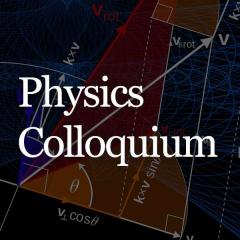What the Variability of Embedded Protostars Tells Us about Accretion: Past, Present, and Future
Speaker: Dr. Doug Johnstone
Affiliation: National Research Council Canada - Herzberg Astronomy and Astrophysics Research Centre
Abstract
The James Clerk Maxwell Telescope (JCMT) has been monitoring eight nearby low-mass star-forming regions in the Gould Belt at submillimetre wavelengths for over seven years to search for and quantify the time dependent brightness variability of the resident deeply embedded protostars. Secular variability is common among these protostars; greater than 25% of the sample show measurable long-term brightness changes and 10% show burst behaviour lasting months to years. We interpret this secular variability as reflecting changes in the mass accretion rate from the disk to the protostar, as predicted by theoretical models of (proto)stellar assembly. For a subset of our sample we have contemporaneous mid-IR light-curves which allow additional constraints on the conditions responsible for the brightness variations, confirming that the submillimetre variability is driven by changes in the dust temperature profile of the envelope. Furthermore, we have combined, for one source, single dish and interferometric sub-mm monitoring, which has allowed us to unambiguously recover a time lag in the variability at larger angular scales and use the results to confirm the envelope structure surrounding the embedded protostar.
About Physics colloquium
The Physics Colloquium series hosts a range of speakers from Australia and abroad. The series explores a variety of topics and everyone is welcome to come along. The seminars are open so there is no need to register your attendance.
If you would like to sign up for colloquium announcement emails, you can join the mailing list by sending a blank email to:
- For UQ email addresses: physics-colloquium-others-join@lists.science.uq.edu.au
- For non-UQ email addresses: physics-announce-external-join@lists.science.uq.edu.au
(Note: if you receive physics-all emails, you should already receive these and don't need to sign up again).
Venue
Room: 222

